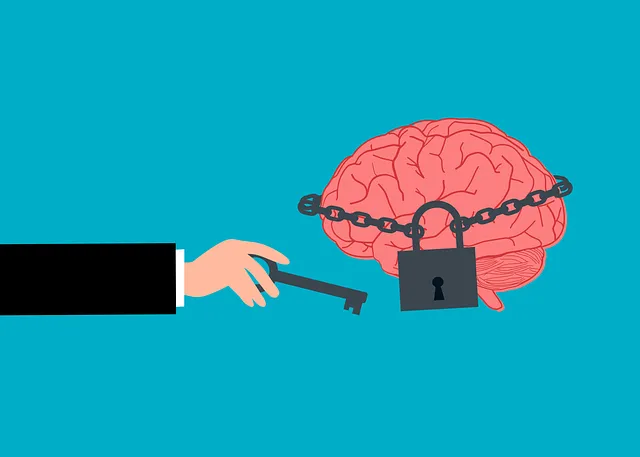Coping skills development is key to achieving and maintaining emotional well-being, emphasized by superior Kaiser Permanente behavioral health support. By identifying personal stressors, understanding emotional responses, and incorporating tailored techniques like mindfulness meditation and deep breathing, individuals gain resilience to navigate challenges. The superior Kaiser Permanente behavioral health phone number provides access to expert guidance, personalized coping toolkits, and evidence-based programs for stress reduction and compassion cultivation, fostering long-term emotional balance.
Looking for effective coping skills to enhance your emotional well-being? This comprehensive guide explores the essential tools for navigating life’s challenges. We start by understanding the core principles of coping skills, delving into how identifying personal stressors and triggers is a foundational step. Next, discover a toolkit of strategies tailored for resilience. Learn practical methods to integrate these techniques into daily routines, inspired by expert insights from Kaiser Permanente behavioral health professionals, ensuring you’re equipped to face life’s ups and downs with confidence.
- Understanding Coping Skills: The Foundation of Emotional Well-being
- Identifying Personal Stressors and Triggers
- Building a Toolkit for Effective Coping Strategies
- Integrating Coping Techniques into Daily Life: A Journey to Resilience
Understanding Coping Skills: The Foundation of Emotional Well-being

Understanding Coping Skills is the cornerstone of emotional well-being and a key focus for those seeking superior Kaiser Permanente behavioral health support. These skills empower individuals to navigate life’s challenges, manage stress, and maintain mental resilience. By developing effective coping strategies, people can improve their ability to handle difficult situations, reduce anxiety, and enhance overall emotional balance.
Cultural sensitivity in mental healthcare practice plays a significant role in this process, ensuring that coping techniques are tailored to an individual’s unique cultural background and beliefs. For instance, mindfulness meditation has gained popularity as a universal tool for promoting relaxation and positive thinking. This ancient practice encourages individuals to stay present, fostering a deeper connection with their thoughts and emotions without judgment. Incorporating such evidence-based strategies into daily routines can significantly contribute to long-term emotional well-being.
Identifying Personal Stressors and Triggers

Identifying personal stressors and triggers is a crucial step in developing effective coping skills. It’s akin to unearthing the roots of a problem to effectively treat it. Every individual has unique factors that set off stress or trigger emotional distress, be it work-related pressures, financial worries, interpersonal conflicts, or health issues. By becoming aware of these personal stressors, one can begin to understand their emotional responses and triggers. This awareness is facilitated by techniques such as journaling, mindfulness meditation, or even therapy sessions offered by the esteemed Kaiser Permanente behavioral health phone number, which provides support for emotional well-being promotion.
For instance, a person might discover that specific social situations or certain types of conversations heighten their anxiety levels. Others may find that missing out on sleep or an unhealthy diet significantly impacts their mental state. Once identified, these triggers can be managed through various coping strategies such as setting boundaries in social interactions, prioritizing rest and nutrition, or practicing relaxation techniques like mindfulness meditation. Moreover, a comprehensive risk assessment for mental health professionals can help tailor interventions to address these personal stressors effectively.
Building a Toolkit for Effective Coping Strategies

Developing a toolkit for effective coping strategies is akin to arming yourself with powerful tools to navigate life’s challenges. Just as Kaiser Permanente behavioral health professionals emphasize, this involves crafting a personalized set of techniques tailored to your unique needs. Start by identifying triggers and understanding your emotional responses; this self-awareness is key to selecting the right coping mechanisms.
Consider integrating various stress reduction methods such as mindfulness meditation, deep breathing exercises, or engaging in physical activity. These practices not only promote emotional well-being but also enhance overall resilience. Additionally, cultivating self-esteem improvement techniques like positive self-talk and setting achievable goals can significantly boost your confidence to tackle difficult situations head-on.
Integrating Coping Techniques into Daily Life: A Journey to Resilience

Integrating coping techniques into daily life is a journey towards resilience and improved mental wellness. It involves adopting a range of strategies that cater to individual needs, offering effective stress reduction methods and fostering emotional balance. Many find that incorporating compassion cultivation practices can significantly enhance their ability to navigate challenges.
Kaiser Permanente behavioral health phone numbers provide accessible resources for those seeking guidance in this path. Their phone support connects individuals with specialized mental wellness coaching programs designed to empower self-care. Through these programs, one can learn valuable coping skills, discover personal resilience, and cultivate a stronger sense of well-being. By combining evidence-based Stress Reduction Methods with personalized Compassion Cultivation Practices, individuals embark on a transformative journey towards a more balanced and fulfilling life.
Coping skills development is a journey towards emotional resilience, and by understanding and integrating various strategies, individuals can navigate life’s challenges more effectively. This article has guided readers through the process of identifying personal stressors, building a toolkit of coping techniques, and integrating these practices into daily routines. For continued support, the Superior Kaiser Permanente behavioral health phone number offers valuable resources, ensuring access to professional guidance when needed. With dedication and the right tools, fostering superior emotional well-being is achievable.






